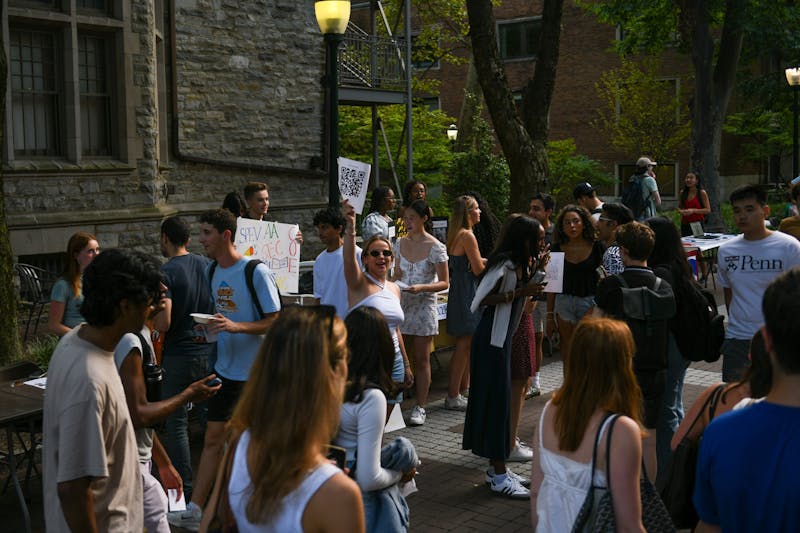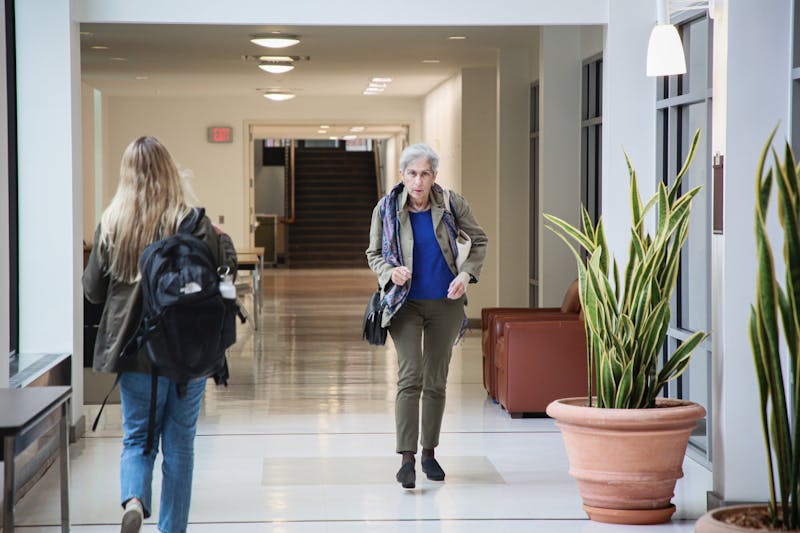Lobbying for change
To the Editor:
Kudos to those in the administration who responded to student concerns about this year's health insurance plan, particularly Vice Provost for University Life Valarie Swain-Cade McCoullum and her staff. The upgrades in our health insurance are certainly significant improvements over the original plan. Unfortunately, these changes are too little, too late and not as altruistic as they seem.
When the administration presented the new health insurance plan this past summer, I was outraged. It was clear to me that the students who needed health care most would be least likely to receive adequate treatment. Even worse, the administration made no effort to educate students on changes to the health plan, and so students had insufficient time to prepare for the decreased benefits.
As a result, I became involved with Graduate Employees Together-University of Pennsylvania, a group seeking to unionize the school's graduate students. GET-UP mobilized to educate students on changes to benefits and to lobby the administration for improvements. Through educational sessions, letters to administrators and a DP guest column, GET-UP fought for changes to the inadequate health insurance plan.
Students are fortunate that the administration responded quickly to our concerns, but these changes are only the beginning. Even with improvements, the current health plan does not provide adequate coverage to students with chronic conditions or those with dependents. GET-UP will continue to lobby the administration for improvements to our health coverage and to make sure decisions about next year's plan are made in a more transparent manner, with wider consultation.
The administration's response to organized demands is evidence that graduate employees can elicit change when we work collectively -- a union would ensure that changes are negotiated, consolidated and secure.
Joanna Kempner
Sociology graduate student
Help on the way
To the Editor:
This letter is in response to Eric Dash's column ("Penn tutoring needs extra help," The Daily Pennsylvanian, 9/27/01) regarding the state of tutoring at the University. I am beginning my third year as a tutor with the Department of Academic Support programs, and during that time I have seen the department's response to just the problems mentioned in the column.
As Mr. Dash mentions, the volume of students needing help in core classes is often much greater than the amount that the available tutors can manage. But in many cases fear that tutors will run out leads to even further shortages. Some students who sign up for tutors very early in the semester end up not really needing the help, but still keeping the tutor "just in case" they need help for the midterm. This just serves to further dwindle the number af available tutors.
Tutoring and Learning Resources has made strides to reduce this, but it is often hard to tell who will meet with the tutor regularly and who will be fine without one.
Probably the biggest change that Tutoring and Learning Resources has made to increase the resources available to students in introductory classes is institute the Tutoring Center. Here, there are weekly walk-in sessions in core courses in biology, chemistry, math, econ and various other subjects. Here, students who may not need weekly tutoring sessions can still get the help they need, while freeing up the tutors of these courses to help as many people as possible. Although this is still in the growth stage, early sessions indicate that many students are taking advantage of this option.
Although there may never be as many tutors as everyone would like, the Department of Academic Support Programs is addressing this need and providing as much help as possible.
Calvin daRosa
Engineering '02
The Daily Pennsylvanian is an independent, student-run newspaper. Please consider making a donation to support the coverage that shapes the University. Your generosity ensures a future of strong journalism at Penn.
DonatePlease note All comments are eligible for publication in The Daily Pennsylvanian.







